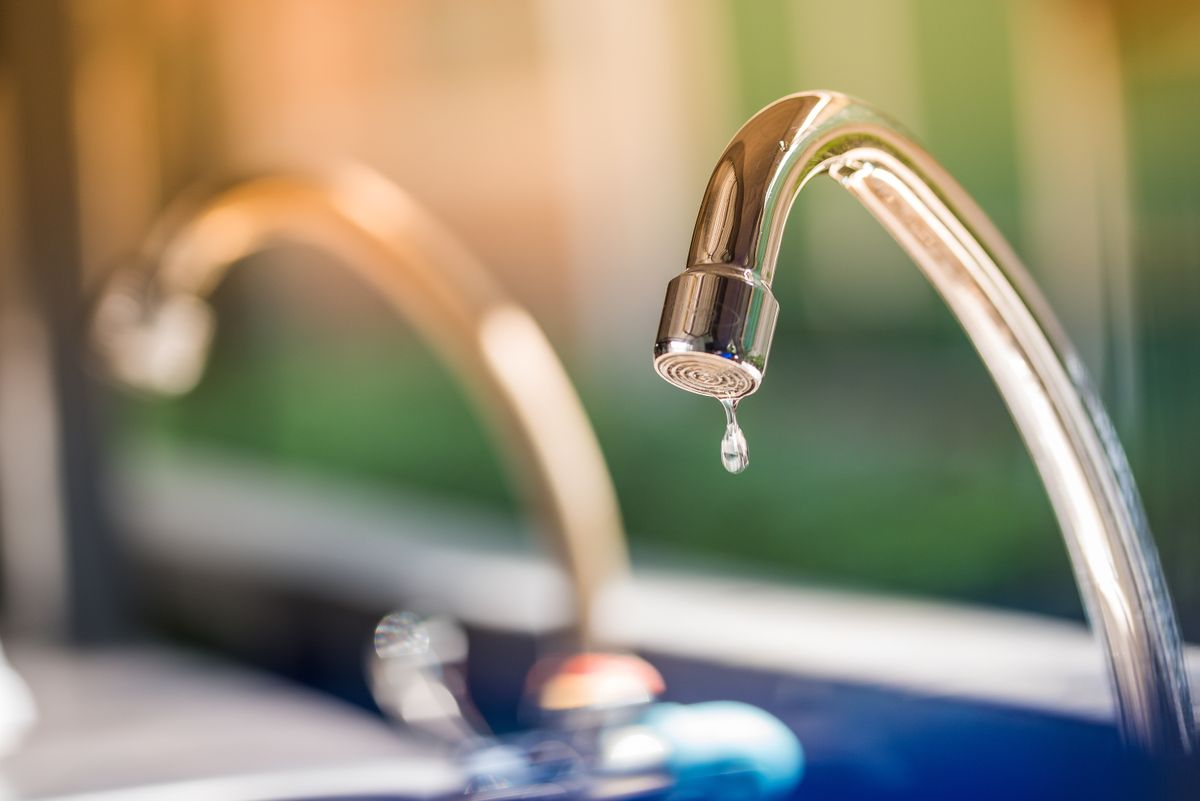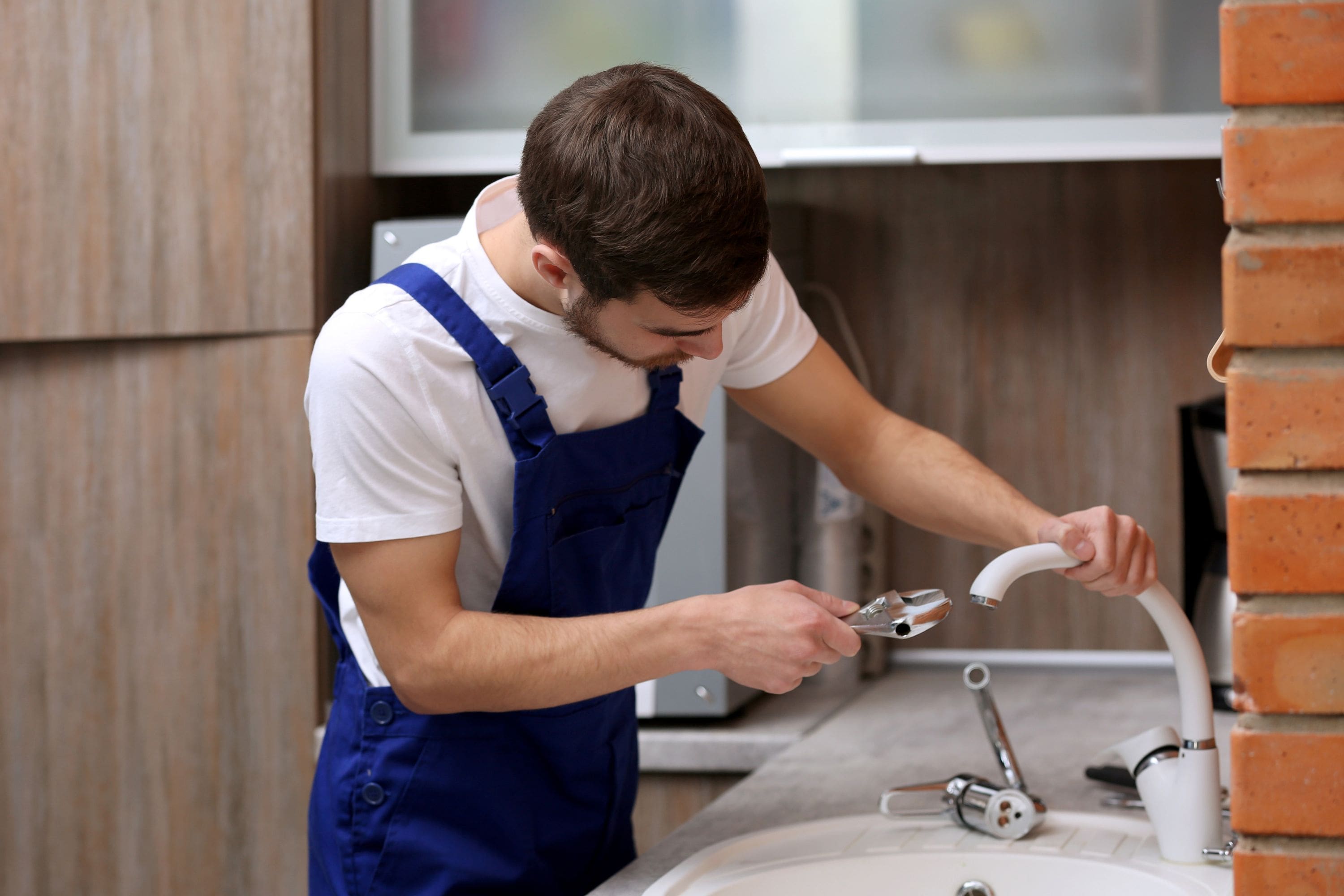Factors Why It's Critical to Fix a Leaking Faucet
Factors Why It's Critical to Fix a Leaking Faucet
Blog Article
We have stumbled on this article on What Causes Leaky Faucets & How To Fix Them directly below on the internet and accepted it made sense to write about it with you in this article.

Trickling faucets might look like a small trouble, however their effect exceeds just the aggravation of the audio. From wasting water to sustaining unnecessary financial expenses and health dangers, neglecting a dripping faucet can result in numerous consequences. In this short article, we'll look into why it's crucial to resolve this common household problem quickly and properly.
Wastefulness of Water
Environmental Influence
Dripping faucets add considerably to water wastefulness. According to the Epa (EPA), a solitary faucet leaking at one drip per secondly can squander more than 3,000 gallons of water annually. This not just stress water sources but also affects environments and wild animals dependent on them.
Financial Costs
Enhanced Water Expenses
Beyond the environmental impact, trickling taps can inflate water expenses considerably. The accumulated waste in time converts right into higher utility expenditures, which can have been avoided with prompt repair services.
Prospective Building Damages
Additionally, long term trickling can result in harm to fixtures and surfaces bordering the tap. Water accumulation can create discoloration, deterioration, and even structural concerns if left ignored, causing additional repair expenses.
Health Problems
Mold and Mildew Growth
The consistent existence of moisture from a dripping faucet develops a suitable environment for mold and mildew development. These fungis not only compromise indoor air top quality but additionally position health and wellness dangers, particularly for people with respiratory conditions or allergies.
Waterborne Conditions
Stationary water in leaking faucets can come to be a breeding ground for germs and other microorganisms, raising the risk of waterborne illness. Contaminants such as Legionella germs grow in stationary water, possibly leading to serious illnesses when consumed or inhaled.
Do it yourself vs. Expert Repair work
Pros and Cons of Do It Yourself Fixing
While some may attempt to fix a trickling tap themselves, do it yourself repair services feature their own set of difficulties. Without proper expertise and devices, do it yourself attempts can aggravate the problem or cause insufficient fixings, prolonging the problem.
Advantages of Working With a Specialist Plumber
Working with a specialist plumber guarantees that the underlying root cause of the trickling faucet is attended to successfully. Plumbing professionals have the know-how and devices to detect and repair tap problems effectively, saving time and minimizing the danger of further damages.
Step-by-Step Overview to Repairing a Dripping Tap
Tools Called for
Prior to attempting to deal with a trickling tap, gather the essential devices, including a flexible wrench, screwdrivers, substitute parts (such as washers or cartridges), and plumber's tape.
Typical Faucet Issues and Their Solutions
Recognize the kind of faucet and the specific issue creating the drip. Usual troubles include damaged washers, corroded valve seats, or defective O-rings. Describe producer instructions or online tutorials for step-by-step guidance on repair services.
Preventive Measures
Regular Upkeep Tips
To stop leaking taps, do regular upkeep such as cleaning up aerators, examining for leakages, and replacing worn-out components immediately. Additionally, take into consideration setting up water-saving tools or updating to a lot more reliable fixtures.
Significance of Prompt Services
Addressing leaking taps as soon as they're observed prevents additional water wastefulness and possible damage, ultimately saving both water and cash in the long run.
Influence On Residential Or Commercial Property Worth
Understanding of Well-Maintained Home
Maintaining a home in good condition, consisting of resolving maintenance problems like leaking taps, improves its perceived worth and value among prospective purchasers or occupants.
Impact on Resale Worth
Features with well-maintained plumbing components, consisting of faucets, command greater resale worths in the property market. Attending to trickling faucets can add to a positive perception throughout property inspections and settlements.
Ecological Responsibility
Private Contribution to Conservation
Taking responsibility for fixing trickling faucets aligns with more comprehensive efforts toward water conservation and environmental sustainability. Every person's actions jointly make a considerable impact on maintaining valuable resources.
Sustainable Living Practices
By focusing on prompt fixings and embracing water-saving habits, people contribute to sustainable living techniques that profit both existing and future generations.
Conclusion
Dealing with a trickling tap exceeds mere comfort; it's an essential step towards conserving water, lowering financial expenses, and protecting health and wellness and residential or commercial property. Whether via DIY fixings or expert assistance, acting to fix trickling faucets is a tiny yet impactful means to promote responsible stewardship of resources and contribute to a healthier, much more sustainable future.
How to Fix a Leaky Faucet: Step-by-Step Repair Guide
A leaky faucet may seem like a simple annoyance, but if it's not fixed promptly, that leak could cost hundreds to potentially thousands. From water damage to mold, mildew, and high water bills, even a tiny leak can be catastrophic if left unattended. Damage like this can even affect the overall value of your home, so it's important to take the right approach for leaky faucet repair. You may need the help of a plumber in some cases, but we've got a few tips you can try on how to fix a leaky faucet before calling the pros.
Four Faucet Types
When you're learning how to fix a leaky faucet, the first step is knowing what kind of faucet you're working with! There are four common types.
Cartridge Faucets
Cartridge faucets come in one- or two-handled varieties. In one-handled cartridge faucets, hot and cold water combines in a single cartridge. In the two-handled versions, hot and cold water are controlled separately and mixed in the faucet.
Ball Faucets
Ball faucets have a single lever you push up and down to adjust the pressure and rotate to change the temperature. A slotted metal ball controls the amount of water allowed into the spout.
Compression Washer Faucets
They're the oldest type of faucet, but they're still used in many homes — especially older ones. Compression faucets have two separate handles that, when turned, raise or lower the washer that seals a water valve. This valve stops water from flowing through the faucet when it is turned off.
Disc Faucets
Disc faucets rarely need to be repaired due to their maintenance-free design. The water flow is controlled by two discs — the upper one raises and lowers against a fixed lower disc, creating a watertight seal. If your disc faucet starts leaking, you may need to replace the seals or clean residue buildup from the inlets.
Fixing a Leaky Faucet
Step 1: Turn Off the Water
Whether you're learning how to fix a leaky bathtub faucet or how to fix a leaky kitchen faucet, always turn off the water supply to your working area when you're fixing a leak. The last thing you want is a flood added to your list of things to fix.
Look for the shutoff valves below your sink or around the tub and turn them clockwise to stop the water flow. If your faucet doesn't have shutoff valves, you may need to turn off the water for the whole house. Check to make sure it's off by turning the faucet on. If nothing comes out, you're ready to start the repair.
Step 2: Take Apart the Faucet
How you disassemble your faucet depends on the type of fixture you have. You can use a flathead screwdriver to remove the caps on top of the handle or handles for cartridge and compression faucets. Inside, you should see handle screws. Unscrew these with a screwdriver to remove the handle.
Disc- and ball-style faucets will typically have an inlet screw near the handle, and removing that will reveal the interior of the faucet.
Detach the Valve Stem
For cartridge- and compression-style faucets, you'll see the inner valve stem or cartridge once you remove the faucet handles. If you have a compression faucet, unscrew the brass valve stem. If you have a cartridge faucet, pull out the cartridge. If your cartridge has been in place for a while, it may require some tools or extra force to remove it due to mineral deposits.
Examine and Replace Parts
Once you've removed the parts, check them out to confirm what needs to be replaced. You may see corroded rubber washers, O-rings, stems, or cartridges. On a ball-style faucet, check the seats and springs for damage.
If you need to repair a leaky disc faucet, check the inlet and seals on the lower disc.
Once you determine what parts must be replaced, visit your local hardware store. Bring the damaged parts with you to ensure you can purchase the correct components to replace them.
Clean Valves and Faucet Cavity
If you've removed a stem or cartridge, you may notice mineral buildup in the faucet's threads. Use white vinegar to clean the valve seat by soaking it for a few minutes, then scrub it away with a soft toothbrush and rinse with warm water. You can also clean the interior of the faucet in the same way.
Reassemble the Faucet
Once your faucet is cleaned and the required parts have been replaced, it's time to reassemble it. Put the pieces back together and slowly turn the water supply back on. Doing this slowly is crucial because too much initial water pressure can damage the new hardware you've just installed.
https://homewarranty.firstam.com/blog/how-to-fix-leaky-faucet

I hope you enjoyed reading our excerpt about Should I Repair or Replace a Leaky Faucet?. Thanks a ton for taking the time to browse our posting. Do you know another person who is interested by the topic? Please feel free to share it. I appreciate your readership.
Report this page